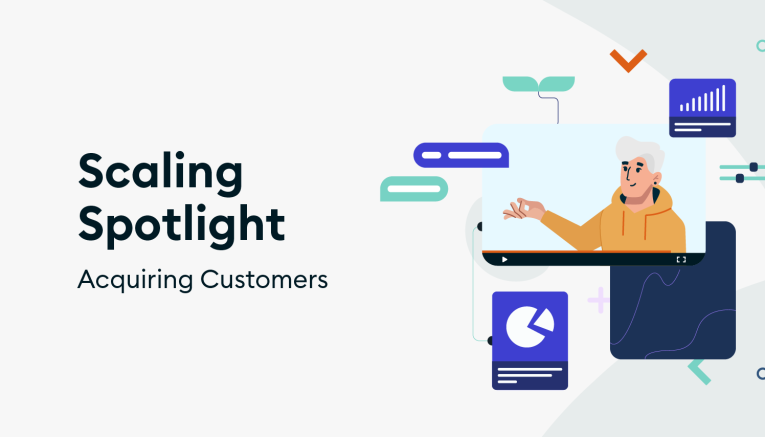How Partnerships Could Boost your Customer Acquisition

Customer acquisition should be a key focus in your sales strategy, and while you might have a handle on most of the channels, if you’re not utilising partnerships, you’ll minimise a wealth of acquisition opportunities at your fingertips.
Partnerships can breathe new life into your brand, open your product up to a whole host of new people, and it even lets current or past customers see you through new eyes.
But why and how can partnerships bring a much needed boost to your customer acquisition? Let’s dive in.
Access to their channels
This is the most obvious benefit of partnering up with someone else - they will already have an established customer base which you will gain instant access to. This will include their email list, social media reach, and more. Working with a partner means you can capitalise on the trust they have built with their customers. New channels equal new customers - simple!
Increase brand awareness
Not everyone on your partner’s channels will convert, but your partnerships can give you a massive boost in brand awareness, which is a big win.
Two heads are better than one
Bringing a partnership into your customer acquisition strategy will, by default, bring some new minds - and perspectives - into your process.
Whoever you partner with will have their own brand and perhaps their own team, meaning you will need to develop a new, fresh way to market yourselves together. Your budding partnership and dynamic will offer different ways to reach prospective customers in a brand-new way.
Double the reach at half the cost
If you’re introducing a partnership to your customer acquisition, you could technically halve the cost of each customer acquired, doubling the number of customers you can reach - excellent.
Think outside the competitor box
When some people think about partnerships, they often think about competitors, but partnerships are much more nuanced than that. In reality, your competitors could be potential partners; offering something to the masses that you can’t provide at present.
When you consider the things that you’re unable to provide for your customers, and partner with someone who can, you’ll create real value for your customer base. A truly useful partnership will set you apart from everyone else in the marketplace by offering a unique combination of knowledge, products, and outcomes.
What type of partner are you looking for?
When it comes to partnerships there are several options available to you. You might find one type of partnership works best for your brand, you might choose a combination of options, or perhaps you will utilise all of them. It all depends on your brand and your customer personas.
Here are some examples of the different sorts of partnerships that exist:
Big brand partnerships: This could be a flagship partnership with a well-known brand. This type of partnership will give you the most exposure but it’s also the most difficult to organise and secure. You will need to co-brand all your comms and run an advertising campaign to promote the partnership and the unique offering it brings.
Affiliates: Affiliate marketing is easier to organise; you might approach people or organisations or perhaps they might come to you. You might even do something as simple as setting up a landing page for brands or persons who want an affiliate partnership with you.
Influencers: Influencer marketing isn't suitable for every brand, but in some instances where the right influencer meets the right product, it could result in your product going viral. Marketing on TikTok in particular has proven to be incredibly effective when it comes to getting the word out about particular products.
But choose wisely
While partnerships are a brilliant way to widen your customer base, it’s really important to carefully consider who you partner with.
Not only should a new partner have similar values to your company, they also need to reflect the values, goals, and preferences of your customers, and chime nicely with what your customers expect from you. Otherwise you might end up ruining your relationship with existing customers and will likely struggle to bring in new custom too.


